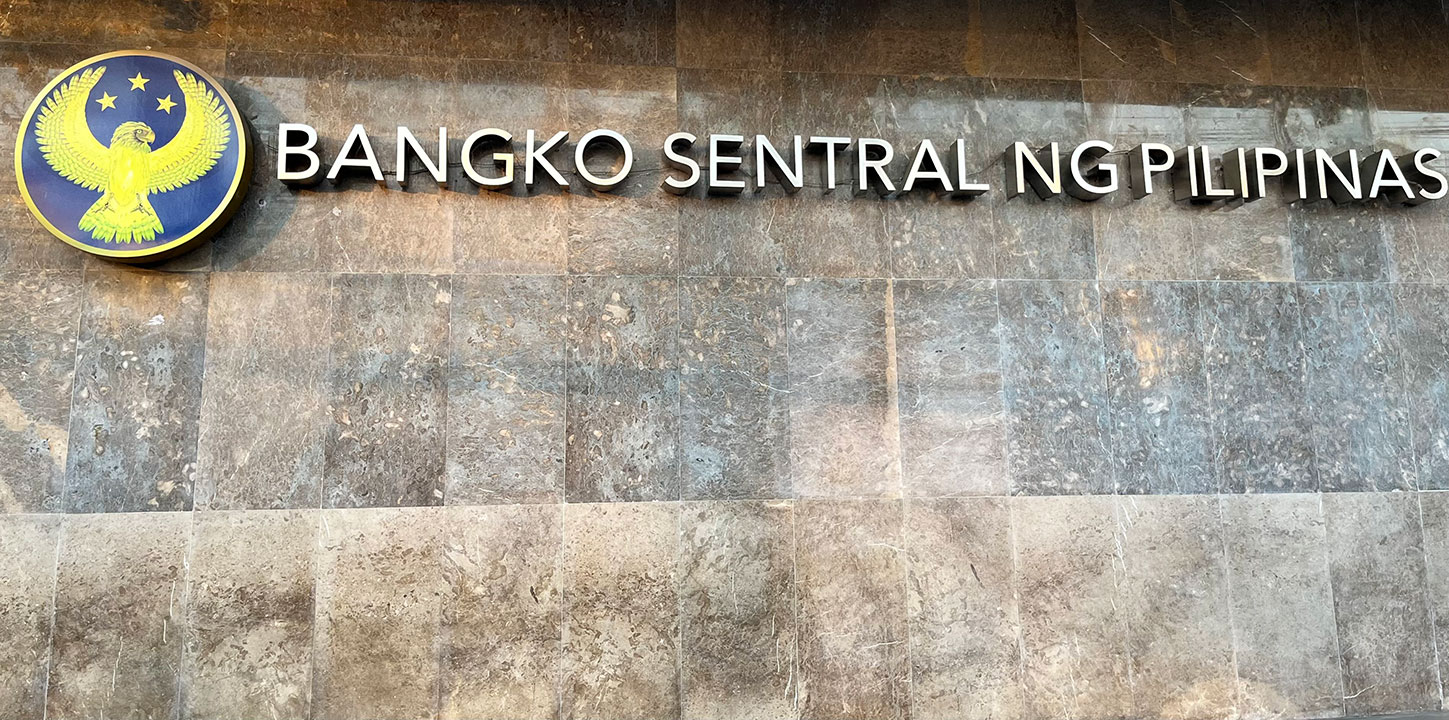Further BSP rate hikes unlikely even if inflation exceeds target anew

Luisa Maria Jacinta C. Jocson, Reporter
FURTHER TIGHTENING by the Bangko Sentral ng Pilipinas (BSP) is unlikely unless inflation expectations take a turn for the worse, analysts said.
“More tightening is only likely if inflation expectations significantly worsen, potentially leading to a difficult decision between controlling inflation and economic growth,” Security Bank Corp. Chief Economist Robert Dan J. Roces said in a Viber message.
“Even more important is that our inflation problem is supply side, which technically means that there is only so much that monetary policy can do,” he added.
The Monetary Board last month kept its policy rate steady at a near 17-year high of 6.5% for a fourth straight meeting after it raised benchmark interest rates by a cumulative 450 basis points (bps) from May 2022 to October 2023 to help tame elevated inflation.
BSP Governor Eli M. Remolona, Jr. earlier said that their current policy rate is “already tight” and that they would only consider further rate hikes if inflation expectations are de-anchored.
Jonathan L. Ravelas, senior adviser at professional service firm Reyes Tacandong & Co., said further rate increases would “depend on how inflation unfolds in the coming months, along with climate concerns and geopolitical noise.”
Headline inflation averaged 3.3% in the first quarter, below the BSP’s 3.8% forecast and within its 2-4% target for the year.
A BusinessWorld poll of 16 analysts yielded a median estimate of 4.1% for April inflation, within the BSP’s 3.5-4.3% forecast for the month.
If realized, this would overshoot the central bank’s target range for the first time since the 4.1% print in November 2023.
The Philippine Statistics Authority will release April inflation data on May 7, Tuesday.
The BSP earlier said that inflation may temporarily go above their 2-4% target over the next two quarters due to base effects and the impact if the El Niño dry spell on the prices of key commodities like rice.
GlobalSource Partners said in a report that inflation may have quickened further in April amid high food prices due to the agricultural damage from the El Niño weather event.
“We therefore estimate that the April inflation could skew closer to 4%. The actual core inflation that we will be seeing next week will tell us the extent of monetary policy bite,” Diwa C. Guinigundo, country analyst for the Philippines of GlobalSource Partners, said.
“Given the unprecedented high temperatures, based on official government reports, huge agricultural damage is expected. Water shortage is serious in many parts of the country with rivers and other bodies of water drying up. For this reason, food items which comprise more than 35% of the consumer basket could drive the April inflation much higher.”
Agricultural damage due to El Niño is now valued at P5.9 billion, according to the latest bulletin by the Department of Agriculture.
Rice was the most affected commodity and accounted for 53.2% of the damage, equivalent to P3.14 billion. This was followed by corn, which recorded P1.76 billion in damage or 29.8% of total losses.
“Rice and corn alone account for over 10% of the basket. With delayed imports, it is difficult to sustain food security and stable prices. Moreover, power failure in a number of hydroelectric plants could restrain manufacturing and other business activities,” Mr. Guinigundo added.
China Bank Research said inflation may continue to surpass the BSP’s target band in the coming months.
“Looking ahead, unfavorable base effects and persistent price pressures may drive inflation above the BSP’s target from May to July, unless we see significant price reversals,” it said in an e-mail.
“Whether the economy can withstand another hike depends on the severity and persistence of the inflation increase. Again, the BSP will likely weigh the need to control inflation against the risk of slowing economic growth,” Mr. Roces said.
The government targets gross domestic product (GDP) growth of 6-7% this year.
The Philippine economy likely expanded by 5.9% in the first quarter, according to a BusinessWorld poll of 20 analysts last week.
If realized, this would be faster than the 5.5% growth recorded in the fourth quarter but slower than the 6.4% in the first quarter of 2023.
Finance Secretary Ralph G. Recto earlier said GDP likely expanded by 5.8-6.3% last quarter.
With inflation remaining elevated, analysts expect the BSP to extend its policy pause.
“With risks still leaning to the upside, the BSP will likely hold its policy rate at 6.5% at their May 16 meeting,” China Bank Research said.
ING Bank N.V. Manila Senior Economist Nicholas Antonio T. Mapa said the BSP will likely only cut rates once the US Federal Reserve begins its own easing cycle.
“We maintain our expectation that the BSP will be cutting rates as soon as the Fed, and with the Fed likely delaying and downscaling the size of easing, we expect BSP to do the same,” he said.
Mr. Remolona earlier said the central bank may reduce rates by the fourth quarter, though this could be delayed to the first quarter of 2025 if inflation risks persist.
